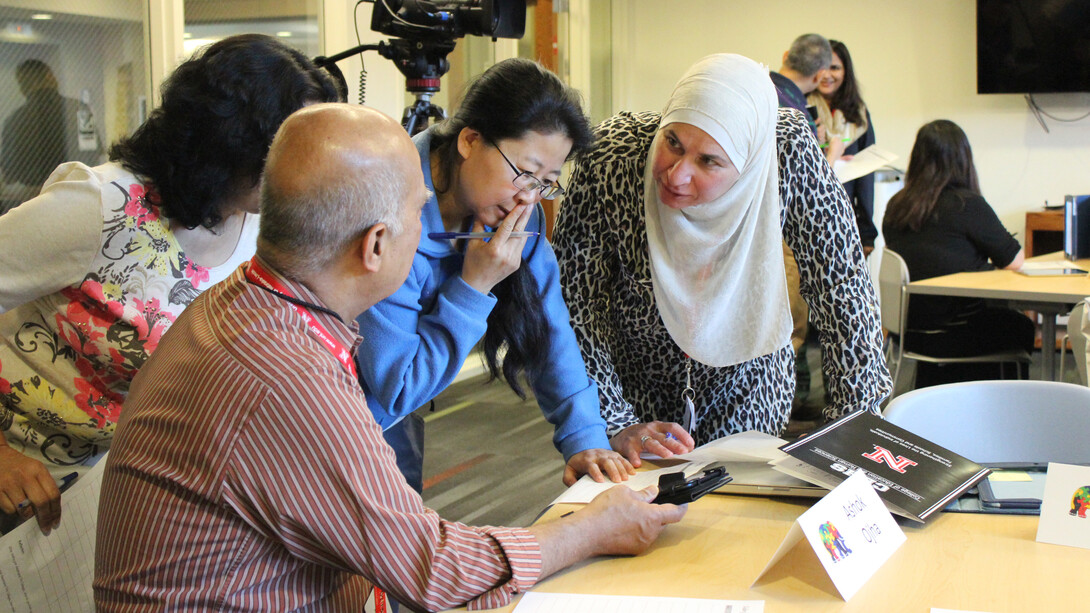
UNL became one of just 10 universities and agencies across the country to be selected to host a Department of Defense and STARTALK Infrastructure Institute, which provides professional development in language, teaching and learning for teachers of critical languages like Hindi, Urdu, Swahili, Arabic and Chinese.
UNL was also considered one of the best places in the United States for education and professional development in critical languages.
Ali Moeller, a professor in the Department of Teaching, Learning and Teacher Education in the College of Education and Human Sciences, is co-director, along with graduate student Sheri Hurlbut, of UNL’s STARTALK language immersion programs, which have been funded through STARTALK for the past four years.
On May 31, 28 teacher-leaders of other STARTALK programs across the U.S. arrived on campus to begin a weeklong residential program that focused on the development of pedagogical skills and creating a learner-centered classroom environment.
The institute was funded by a STARTALK infrastructure grant, which UNL was invited to apply for based on previous work with teachers of Chinese. STARTALK is a program of the National Security Language Initiative, which seeks to expand and improve the teaching and learning of strategically important world languages in the U.S.
The infrastructure institute will help teachers be more effective when teaching in their own STARTALK institutes. These teachers are often native speakers of the target language who lack experience in U.S. schools. The infrastructure institute introduces them to classroom management strategies and the idea of a learner-centered language-learning environment—elements of the culture of American classrooms that may differ significantly from the teacher’s own educational culture.
“We introduce empirically based classroom strategies and practices that are designed to optimize student learning and language proficiency,” Moeller said. “We place the teachers in the role of active learners as they experience firsthand how a particular strategy works and feels, then reflect about and deconstruct this experience and finally prepare classroom lessons that demonstrate competency and classroom application.”
By teaching the teachers, UNL will be setting the bar for critical language education. UNL’s team was also sought out specifically and invited to apply for the grant based on a record of past excellence in critical language education—specifically, the work with teachers of Chinese.
For four years, Moeller and Hurlbut, along with their team of doctoral students, have organized and led two immersion-learning programs that bring together high school students and Chinese language teachers for two weeks each summer to learn, practice and improve. These programs have gone so well that the team has been invited to present regularly at the national STARTALK conferences held twice a year. Moeller was also appointed to the STARTALK advisory board.
The infrastructure workshop will be videotaped and made available via the STARTALK website. For more information, go to the STARTALK Infrastructure Building Institute website at https://sites.google.com/site/stlearnercenteredclassroom/.







